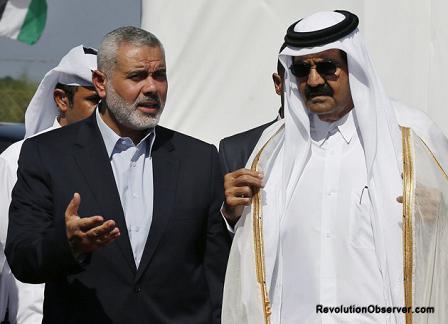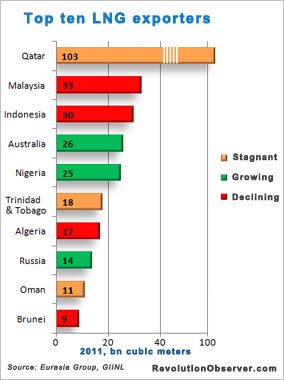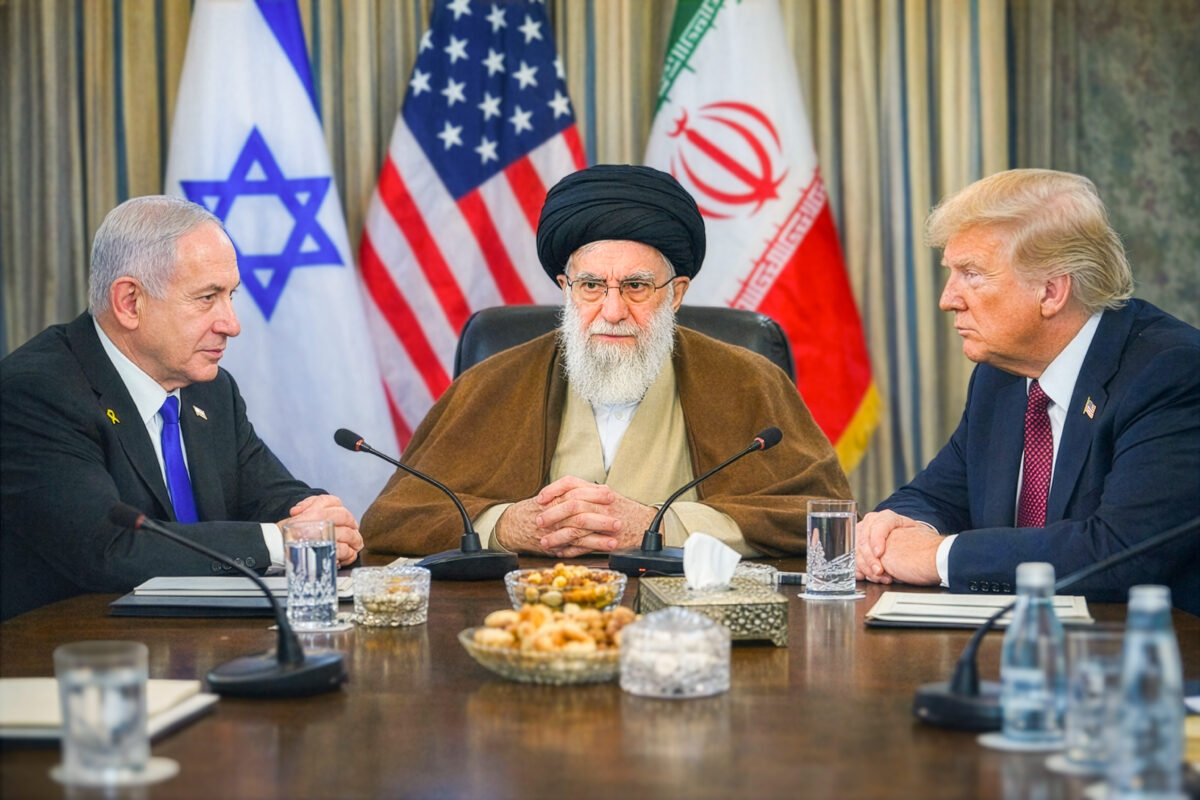By Adnan Khan
Sheikh Hamad bin Khalifa Al Thani’s visit to the Gaza strip on Tuesday, October 23rd 2012, made international headlines as the first time in years any foreign head of state has visited the impoverished coastal strip.[1] Sheikh Hamad flew to Egypt and crossed the border into Gaza and spent 6 hours there. Some believed the move will break the blockade that has been in force since Hamas took power in 2007. However the question arises as to why Qatar, a tiny island in the Persian Gulf that doesn’t even share a border with Palestine, undertook such a visit? To understand this, one needs to appreciate the development of Qatar and a number of regional issues.
Qatar won its independence the same year Sheikh Hamad graduated from the Royal Military Academy at Sandhurst, west of London, in 1971. Prior to this the tiny island was a British colony. He was made a lieutenant colonel in Qatar’s army and rapidly rose to become commander-in-chief of its armed forces. Sheikh Hamad oversaw the development of Qatar’s oil and gas industry and carefully planned an economy that provided Qataris with free education, healthcare, housing, utilities — and no taxes. Crown Prince Sheikh Hamad staged a bloodless coup against his own father in 1995, informing him while he was holidaying in Switzerland.[2]
Qatar has used its extensive gas reserves to develop the island, set up a sovereign wealth fund and undertake large scale infrastructure development on the island. Qatar possesses the giant north gas field that borders Iran and is considered the worlds largest Gas field.[3] The country is also the world’s largest producer of Liquefied Natural Gas (LNG) and possesses the world’s largest LNG plant.[4] It has used this wealth to buy up important assets globally.
Since Sheikh Hamad came to power, Qatar has been busy participating in regional issues and becoming a hub for global negotiations. Doha hosted and acted as mediator for the peace negotiations that were aimed at brokering an agreement between the Government of Sudan and the various Darfur rebel groups. Similarly it was Qatar that arranged an agreement in April 2011 with Mahmoud Abbas which was to lead an interim unity government to pave the way for new elections in the Palestinian territories. Qatar has also been directly involved in implementing the US-sponsored two-state solution. Similarly, in Yemen, Qatar participated in the negotiations for the transition from Ali Abdallah Saleh to Abd Rabbuh Mansur Al-Hadi. On the Afghan issue negotiations with the Taliban and talk of a Taliban office in Doha continue.[5]
Qatar has however not proposed any new solutions to the region’s problems but has taken part in implementing, hosting, organizing and bringing the various parties in the region’s conflicts together in Doha. The dominance of Iran in the Persian Gulf has led many of the Gulf States, including Qatar, into seeking alliances with foreign world powers. Qatar has supported the FSA in Syria as well as various groups in Lebanon, Sudan, Yemen and the wider region. All of these groups that it support and provide sanctuary for, are hostile to the US. However, it has protected European interests and has been at the forefront in all the strategies set by the European Union (EU). For example, Qatar was central to the “Friends of Syria” conference in April 2012, which was an EU organized meeting to bring the various groups and factions in Syria together.[6]
Since emerging victorious in 2007, Hamas has made various statements to show it is a pragmatic player, which can be negotiated with. Khaled Meshal recently said in a speech at the Islamists and Democratic Governance conference in Doha: “Today, is the time for all political actors, including Islamists, to build a strong, contemporary model of democracy. Historical precedents, even for the Islamic system of Shura or ‘consultation,’ were simply too short-lived to be of any instructive use.”[7] Hamas is central to the two state solution, without it the two state solution is not possible. Due to the Arab Spring and with Syria’s Bashar al-Assad’s fall imminent, Hamas turned its back on the “axis of resistance” Iran, Syria and Hezbollah.[8] It is in this context that Sheikh Hamad’s visit to the Gaza strip needs to be understood. Qatar is attempting to take advantage of this opportunity to gain influence over Hamas and thus the Palestinian issue.
While many in the Western media speak of the emergence of Qatar as a regional player, the reality is that it has followed the path that all the dictators in the Middle East have undertaken and that is tying their foreign policy to Western interests. In the case of Qatar its actions show it continues to protect mainly British interests in the region which it does through organizing conferences, negotiations and bringing together groups and proxies in order to execute European plans. The visit by Sheikh Hamad will boost his image and cast him as a hero and this will allow his future involvement on the issue of Palestine. With the uprisings taking place in the Muslim world, if there is any side any ruler should be on, it’s the side of the people, as Gaddafi, Ben Ali and Mubarak found out the hard way.
[1] http://www.nytimes.com/2012/10/24/world/middleeast/pledging-400-million-qatari-emir-makes-historic-visit-to-gaza-strip.html
[2] http://en.wikipedia.org/wiki/Hamad_bin_Khalifa_Al_Thani
[3] http://www.theenergylibrary.com/node/568
[4] http://www.economist.com/node/21558456
[5] http://www.fas.org/sgp/crs/mideast/RL31718.pdf
[6] http://www.bbc.co.uk/news/world-middle-east-17144805
[7] http://english.dohainstitute.org/content/3a92860a-46fb-4075-984b-0cbd7c9b4cac
[8] http://www.ctvnews.ca/world/syrian-state-media-criticize-hamas-leader-for-turning-back-on-assad-1.979985#ixzz289HTL1i8






